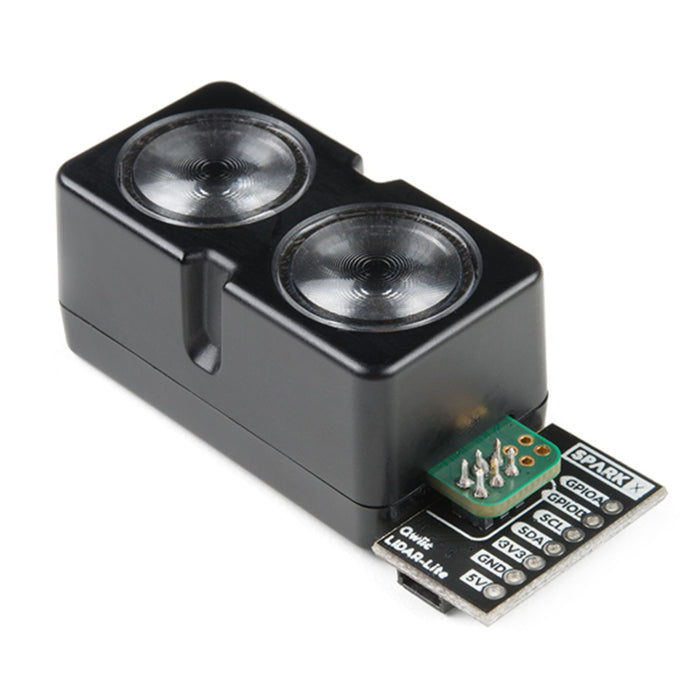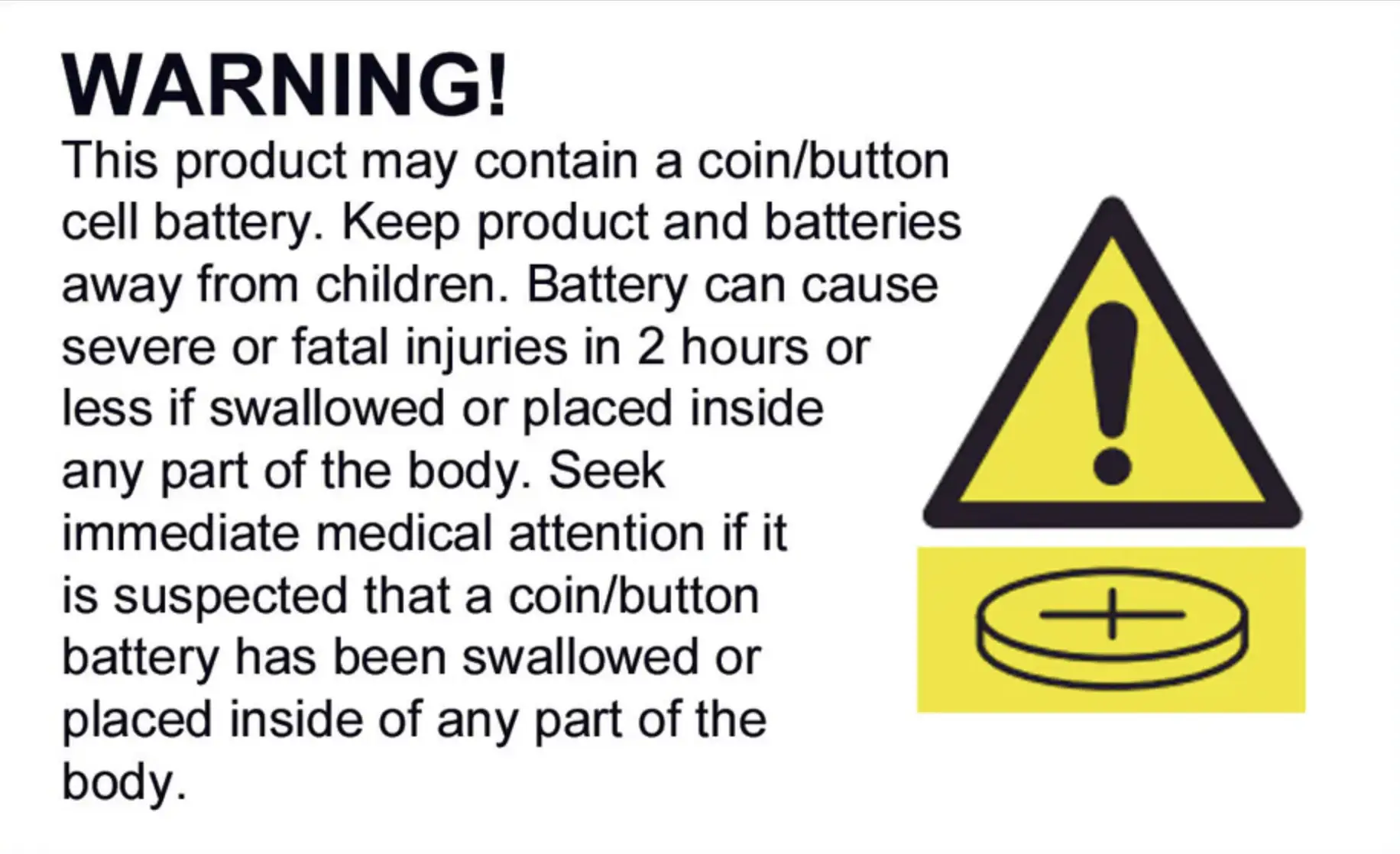
Qwiic LIDAR-Lite v4
GARMIN is back with a new high-performance, wireless optical distance measurement sensor: the LIDAR-Lite v4. This is the ideal solution for drone, robot, IoT, or unmanned vehicle operations, when space is tight and power is limited.
The LIDAR sensor works by sending out an infrared beam and measuring the time it takes to be reflected back. The built-in nRF52840 microcontroller runs a pre-loaded stock application to calculate the distance between itself and something in front of it.
This sensor has up to a 10 meter range, 1 cm resolution, and requires 85 mA during data acquisition. The user can read and write to the LIDAR-Lite v4 using the I2C protocol. It takes 5V to run the LIDAR sensor but it runs on 3V3 logic… enter the Qwiic LIDAR. With a 5V boost circuit and easy-to-use Qwiic connector you can power the sensor and get distance measurements over Qwiic all in one place.
The SparkFun LIDAR Lite v4 Arduino library makes getting data as easy as a call to the getDistance() function. The library also supports changing the I2C address of each LIDAR and provides an easy example of how to do so. Its low power-consumption and I2C address configuration means you can daisy-chain together 10’s of these sensors on one microcontroller platform. You can download the library through the Arduino library manager by searching 'SparkFun LIDAR Lite' or you can get the GitHub repo as a .zip file and install the library from there.
This board is one of our many Qwiic compatible boards! Simply plug and go. No soldering, no figuring out which is SDA or SCL, and no voltage regulation or translation required!
We do not plan to regularly produce SparkX products so get them while they’re hot!
Experimental Product: SparkX products are rapidly produced to bring you the most cutting edge technology as it becomes available. These products are tested but come with no guarantees. Live technical support is not available for SparkX products. Head on over to SparkFun's forum for support or to ask a question.
The Qwiic LIDAR-Lite v4 appears in the following collections:




